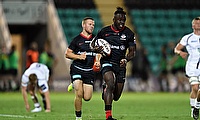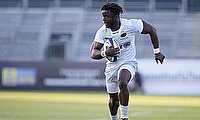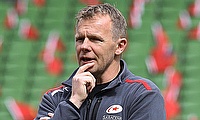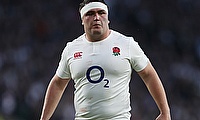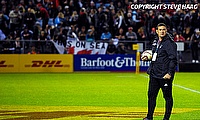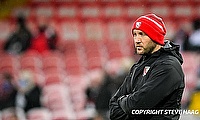Beauty is in the eye of the beholder
Beauty is in the eye of the beholder and in no arena is that more prevalent than in rugby.
Some like their rugby fast and loose, others prefer it more controlled and tactical. There are merits to both styles and the ability to switch seamlessly between the two is what really separates the great sides from the good sides.
Saracens and Racing 92 have both been raked over the social media coals in recent weeks for what some deemed to be a boring Champions Cup final. I, for one, was utterly enthralled by the final, from the first minute to the last, despite the fact no tries were scored.
People have thrown salt at both clubs for their lack of ambition in the driving rain and hail, and have poured cold water on the abilities of both squads, despite their clear standing as the best two teams in Europe. Apparently, both teams’ ambition and try-scoring exploits in the semi and quarter-finals have quickly been forgotten, as has the ease with which they qualified from their respective pools.
Futile comparisons to Super Rugby were inevitable and the final has been used to highlight the gap in skill levels between the two hemispheres. Whilst not disputing this gap still exists, the final in Lyon, as an individual match, has little to no bearing on it.
Both teams involved would be a good match for any of the Super Rugby sides, including the high-flying and free-scoring New Zealand franchises (Crusaders, Highlanders, Hurricanes and Chiefs), and they have exhibited over the course of their domestic and European seasons that they have the skill sets and self-belief to go head-to-head with any opposition. With a number of different approaches designed to maximise their chances of success based on extraneous variables such as opposition style, stage of competition and weather conditions, they are as versatile as any club side around the world.
Upon seeing the dire weather in Lyon and the fact that both teams were anxious to get their first European title and remove the monkey from their backs, they both opted for a more conservative style. This decision should be praised from Saracens, who had the power, awareness and composure to successfully see it through. If Racing were offered a do-over, as formidable as their tight game is, they would likely opt for a different approach, but hindsight is 20-20.
Neither team deserves to be pilloried for adapting their style in order to, in their opinion, maximise their chances of success.
New Zealand sides, both at test and Super Rugby levels, are rightfully held up as the current pinnacle in rugby, but they should not be treated as infallible, impervious exhibitionists of expansive rugby. They adapt their game to suit the conditions just like anyone else. True, many of their players have higher skill levels than those of their rivals and that allows them to take more risks in adverse conditions because they are confident they can pull them off, but it’s not in the final of European competition where that gap needs to be bridged.
It’s at school and age-grade level, and for those who have been watching, that gap is already beginning to dwindle.
It was not long ago that New Zealand were invincible at U18 and U20 level, with only England and South Africa capable of causing them to pause for thought. Fast-forward a few years and South Africa broke New Zealand’s stranglehold on the Junior World Championship, before England won back-to-back titles of their own. It’s no coincidence that England’s first Grand Slam in 13 years has come once a number of those JWC-winning players have graduated to the senior England team.
Australia, Wales and France have all also closed the gap on New Zealand at age-grade level, whilst Scotland are currently sitting on a crop of U20s who could make their fortunes in the Six Nations over the coming years very interesting indeed.
With players who have broader skill sets and more technical refinement coming through in the northern hemisphere, clubs and international teams have more ability to adapt and tailor their game plans for specific situations.
Arguably, no club represents this more so than Saracens. Maro Itoje, George Kruis, Mako Vunipola, Billy Vunipola, Owen Farrell. They all have the ability to play loose or tight and the skill sets required to excel in either approach.
If the men from North London had gone through the entire Champions Cup playing as they did in the final, frustration would be understandable, but nothing could be further from the truth. The fact that young mainstays of the current England team have the ability to play in different fashions and the savvy to decide when it is and when it is not appropriate to adopt them, should be celebrated, not admonished.

